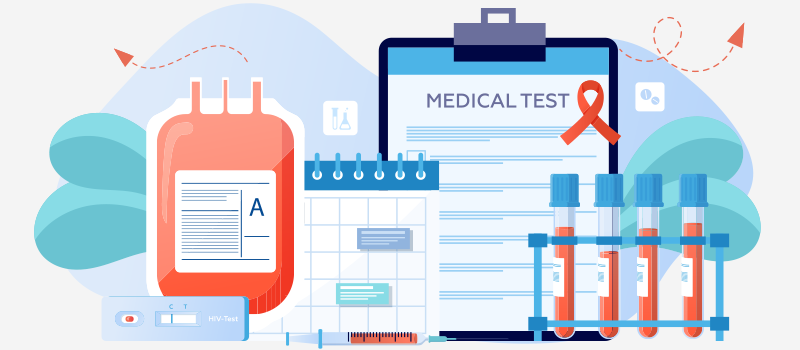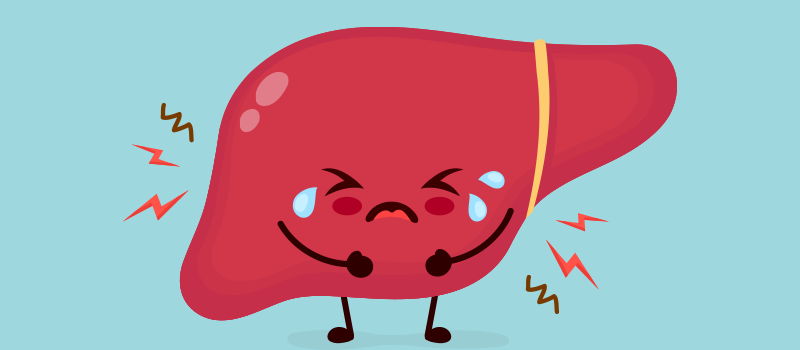How to Read Blood Test Results

A blood test involves taking a small blood sample, usually from a vein in your arm, and sending it to the laboratory for examination. Blood tests can give doctors a lot of information about your overall health, as well as about the functioning of specific organs, such as the liver, kidneys, and thyroid, and can help in diagnosing and monitoring medical conditions. Please continue reading to learn more about the most common blood tests.
Why has my doctor asked for blood tests?
Your doctor may order blood tests as part of a routine physical examination to find the cause of your symptoms, to screen you for chronic health conditions before you develop symptoms, or to monitor the effects of a treatment you are receiving for a medical condition.
Laboratory tests check the levels of blood cells, vitamins, minerals, proteins, enzymes, hormones, and more. Normal test results may be a sign that you are in overall good health. But if you have symptoms, your doctor may order further tests even if you have normal values on your blood test results. Abnormal lab test results do not necessarily mean you have a medical condition. Lab tests simply help healthcare providers reach a diagnosis.
What are the most important numbers in a blood test?
Complete blood count (CBC)
This is the most common blood test and is often part of a routine health checkup. It includes a series of sub-tests. A complete blood count (CBC) measures the different types of blood cells, i.e., red blood cells, white blood cells, and platelets. It also measures hemoglobin (the protein that carries oxygen to every cell in the body) and includes a hematocrit test (how much of your blood is made up of red blood cells), red cell distribution width (RDW) (the size and volume of your red blood cells), and mean corpuscular volume (MCV) (the average size of your red blood cells). A differential white blood cell count measures the different types of white blood cells (neutrophils, basophils, eosinophils, lymphocytes, and monocytes).
Complete blood count (CBC) test results can help in diagnosing anemia and other blood disorders, infections, immune system dysfunction, and other medical conditions. For example, a low red blood cell count can point to anemia or low iron levels. A low white blood cell count may be present in an autoimmune disease or bone marrow disorder. A high white blood cell count may be a sign of infection or blood cancer. A high platelet count (platelets are responsible for blood clotting) can mean you are at an increased risk of clots forming in your blood vessels. A low platelet count can be associated with an increased risk of bleeding.
Basic metabolic panel
These common lab tests measure several parameters that give an overall picture of your health. The test is also called a chemistry panel, blood chemistry, electrolyte panel, or chem 7, and it includes:
- Blood glucose level to screen for diabetes.
- Calcium level (this mineral plays an important role in heart, nerve, and muscle function).
- Electrolytes like sodium, potassium, and chloride (these are necessary for fluid and electrolyte balance in the body).
- Blood urea nitrogen (BUN) and creatinine (these are waste products removed from the body by the kidneys and provide information about kidney function).
- Carbon dioxide in the blood.
- Globulin test (this is a protein made by the liver).
Your doctor may order a basic metabolic panel as part of a routine checkup if you are being treated in the emergency room or if you are being followed for chronic conditions such as diabetes, high blood pressure, or kidney disease.
Comprehensive metabolic panel
This test measures everything in the basic panel plus:
- Albumin (a protein made by the liver).
- Total protein test.
- Liver enzymes, namely, alanine transaminase (ALT), alkaline phosphatase (ALP), and aspartate aminotransferase (ASP).
- Bilirubin (a waste product made by the liver).
- Ammonia levels (to check kidney and liver function).
A comprehensive metabolic panel (also called a chemistry panel, chem 14, or chemistry screen) is used to check for kidney and liver disorders. For example, elevated levels of a liver enzyme may indicate liver disease. High ammonia levels can be a sign of damage to kidney and liver cells. Elevated bilirubin levels can be a sign of liver problems.
Lipid panel
This is a common blood test that is done to measure the risk of heart disease. It includes total cholesterol, low-density lipoprotein (LDL or bad cholesterol), very low-density lipoprotein (VLDL), high-density lipoprotein (HDL or good cholesterol), and triglycerides.
This test checks your risk of cardiovascular disease. Your doctor may order a lipid panel to screen you for heart disease, to follow up on previous abnormal lab results, to monitor the effectiveness of lifestyle changes and cholesterol-lowering medications, or to diagnose certain health conditions such as liver disease.
Blood tests for autoimmune diseases
Autoimmune disorders are conditions in which the body’s immune system mistakenly attacks healthy cells. Examples of autoimmune conditions include rheumatoid arthritis, systemic lupus erythematosus, multiple sclerosis, type 1 diabetes, and many others.
If your provider suspects an autoimmune disease, they may order the following blood tests. Note that none of these is a definitive test for a specific autoimmune condition, but high levels can be a sign of autoimmune disorders, and normal ranges can point to other causes for your symptoms.
- Antinuclear antibody (ANA).
- C-reactive protein (CRP).
- Erythrocyte sedimentation rate (ESR) (to detect inflammation).
- CE complement blood test (for rheumatoid arthritis and lupus).
- Peripheral blood smear (to look at blood cells under the microscope).
Blood tests for cancer
There are four broad categories of blood tests that a cancer care team may order to make a cancer diagnosis or monitor response to treatment:
- Complete blood count.
- Tumor markers (for example, CA-125 for ovarian cancer, human chorionic gonadotropin (HCG) for testicular and ovarian cancer, alpha-fetoprotein for liver cancer, calcitonin for thyroid cancer, cancer antigens 15-3 and 27-29 for breast cancer, and prostate-specific antigen (PSA) for prostate cancer).
- Tests for circulating tumor cells.
- Blood protein tests (immunoglobulins).
How do I read my full blood test results?
Lab results are often shown as your result and a reference range. The reference range or normal range may be listed as 75-100 mg/dL, for example. These are the normal levels found in a large group of healthy people. You can compare your blood test results to the normal ranges. If you have abnormal results (higher or lower than the normal range), your doctor will explain what the test measures, what the result means, and whether you need more tests.
References:
- https://my.clevelandclinic.org/health/diagnostics/24508-blood-tests
- https://medlineplus.gov/lab-tests/complete-blood-count-cbc/#
- https://medlineplus.gov/lab-tests/basic-metabolic-panel-bmp/#:
- https://medlineplus.gov/lab-tests/comprehensive-metabolic-panel-cmp/
- https://my.clevelandclinic.org/health/diagnostics/17176-lipid-panel












SOCIAL